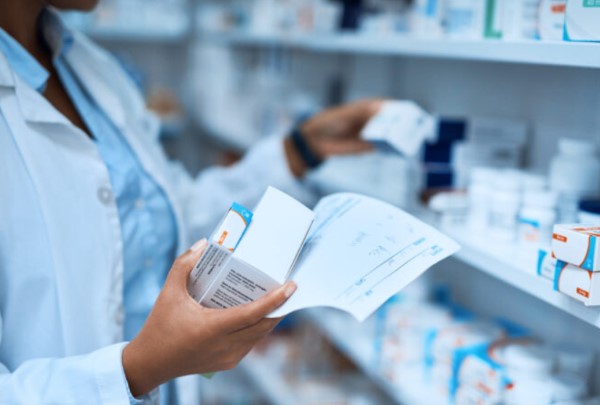
The COVID-19 pandemic has reshaped the world in unprecedented ways, challenging healthcare systems, and the professionals who are at the forefront of the battle against this virus. While much attention has been given to doctors and nurses, it’s essential to recognize the vital role pharmacists have played in these trying times. Pharmacists have emerged as unsung heroes, standing between patients and the healthcare they need, adapting to new challenges, and ensuring the continuity of care. In this article, we explore the diverse roles and responsibilities that pharmacists have shouldered during the COVID-19 pandemic and delve into why they are so respected.
The Most Important Attribute of a Pharmacist
The most important attribute of a pharmacist can be summarized in four to five words: “Empathy for Patient Well-being.” This essential quality ensures that pharmacists not only dispense medications but also connect with patients on a human level, offering not just treatment, but comfort and understanding during their healthcare journey.
Key Roles of Pharmacists during COVID-19
Pharmacists have assumed diverse and vital roles during the COVID-19 pandemic, extending far beyond traditional medication management.
Support for Chronic Disease Management
Pharmacists have provided critical support for individuals managing chronic diseases. They’ve ensured that patients have a consistent supply of medications and have worked with healthcare providers to adjust treatment plans when needed. Their expertise has been invaluable in helping individuals with conditions like diabetes, hypertension, and asthma maintain control over their health, reducing the risk of complications.
Medication Therapy Management
Pharmacists have conducted medication therapy management (MTM) services to optimize treatment outcomes. They have reviewed patients’ medication regimens, identified potential issues, and collaborated with healthcare teams to make necessary adjustments. This service has been especially beneficial for patients with complex medication schedules, improving adherence and reducing the risk of medication-related problems.
Preventive Health Screenings
Pharmacists have been actively involved in providing preventive health screenings. They’ve conducted screenings for various health parameters, such as blood pressure, cholesterol levels, and glucose monitoring, which are crucial for early detection and management of health issues. This proactive approach has helped identify health concerns and guide patients towards appropriate care.
Public Health Advocacy
Pharmacists have been champions of public health advocacy during the pandemic. They have actively promoted public health measures, such as mask-wearing, social distancing, and hand hygiene. Pharmacists have used their positions to encourage community compliance with guidelines, fostering a sense of collective responsibility in the fight against COVID-19.
Infection Control Measures
Pharmacists have implemented rigorous infection control measures in their pharmacy settings. They have maintained a clean and safe environment, including sanitizing surfaces, providing hand sanitizers, and ensuring that both staff and customers follow recommended safety protocols. These measures have minimized the risk of virus transmission in pharmacy settings.
Contribution to Research and Data Collection
Pharmacists have contributed to research and data collection efforts related to COVID-19. They have participated in clinical trials, collected data on patient outcomes, and reported adverse drug reactions. Their involvement in research has advanced our understanding of the virus and treatment options.
Mental Health Support
Pharmacists have recognized the impact of the pandemic on mental health. They have been a source of support for individuals struggling with anxiety, depression, and other mental health challenges. Pharmacists have provided information on mental health resources and counseling services, promoting holistic well-being.

Emergency Response Preparedness
Pharmacists have played a role in emergency response preparedness. They have been actively involved in creating emergency medication supply plans, ensuring that communities are well-prepared for future health crises. Their expertise in medication management has been an asset in disaster response planning.
Community Engagement and Education
Pharmacists have engaged with local communities, educating them on the importance of vaccination and adherence to public health guidelines. They have organized educational events, webinars, and community outreach programs to disseminate accurate information and address concerns.
How Do Pharmacists Collaborate with Healthcare Teams?
Pharmacists have worked closely with physicians and nurses, contributing their expertise to optimize patient care. They’ve established effective communication channels to share information and ensure seamless patient transitions, especially for those discharged from hospitals. Many pharmacists have joined multidisciplinary COVID-19 response teams, leveraging their unique skills and knowledge, often relying on a comprehensive pharmacy business guide to ensure efficient and coordinated care.
Conclusion
In the battle against the COVID-19 pandemic, pharmacists have stepped forward as unsung heroes. Their most vital attribute, empathy for patient well-being, bridges the gap between clinical expertise and human connection, providing comfort and understanding alongside treatment. Pharmacists have undertaken a diverse array of roles, from managing chronic diseases to advocating for public health measures and providing mental health support.
Their collaboration with healthcare teams ensures optimal patient care, and their involvement in emergency preparedness has fortified communities. Pharmacists have demonstrated unwavering commitment, making them indispensable in the ongoing fight against COVID-19 and beyond.

